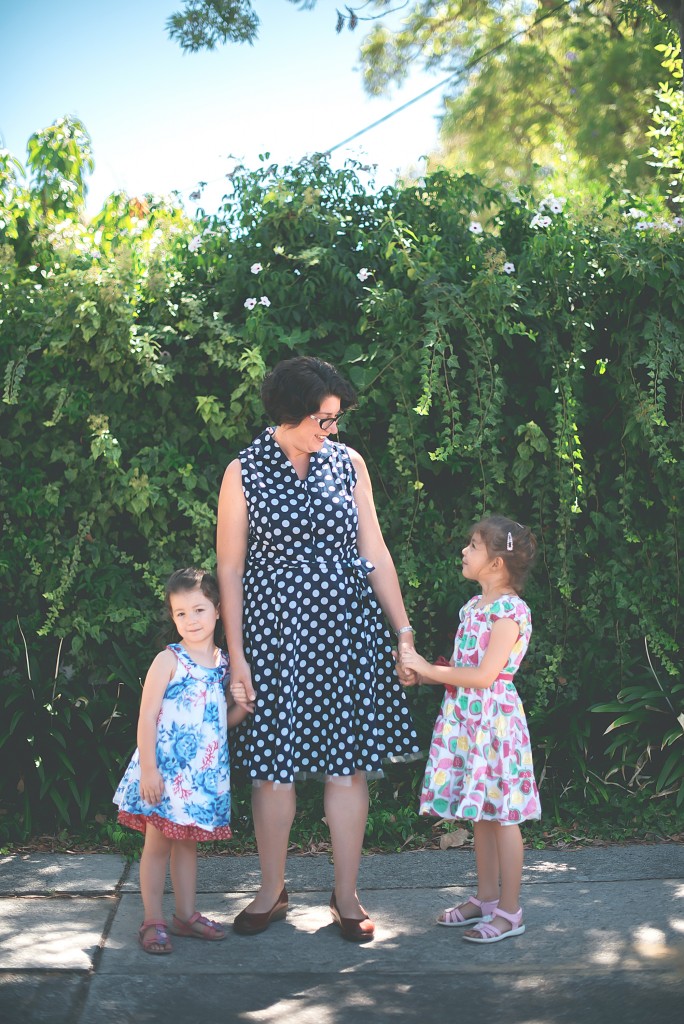 I have two daughters, nineteen months apart. Two children of the same sex and very close in age, but oh so different.
I have two daughters, nineteen months apart. Two children of the same sex and very close in age, but oh so different.
I have a little lady who is dramatic about everything. She loves to be centre stage. We have footage of her performing to the family as a two year old. We have no doubt she will be doing drama at some stage.
She is a morning person like me, and an analytical thinker like her father. She has no interest in music, except to dance to but loves drama (yep that comes from me!).
Our other little girl is quieter, cheekier, with a sly sense of humour. She is a night owl (like her dad). She loves music (again her Dad). She is a homebody and loves cuddles (like her mum).
I could spend all day listing their attributes and where they come from. The natural athleticism in one that skipped a generation and comes from Gran. The deep love of science my eldest has inherited from my husband’s side of the family. And I haven’t even touched on their physical attributes.
While it is useful to recognise the different traits that make up our children’s character, it is more useful to nurture them.
I believe our job as parents is to help our children negotiate the character that they have inherited. And those things they have taken on from the environment around them. Some of the ways we attempt to do this in our family are:
Using positive words for character traits
We are very aware that each of these traits has a flip side. One child’s stubbornness can also be seen as determination. Another child’s emotional sensitivity can lead to a caring heart for others or a heart that is easily hurt.
A tendency to be a perfectionist can be a burden but also a blessing depending on the situation. We really want our surgeons to be quite perfectionistic when they pick up a scalpel.
By intentionally choosing positive words to describe character traits, I encourage and nurture the positive in my girls. I can choose to tell my daughter that she is too dramatic, and just to tone things down a little. But instead I tell her that I love her enthusiasm and how she chooses to live life large.
Critically thinking about our character
We also try to help our girls think critically about their character. Often with input from us “I’m like that too … this is how I deal with it”. When we actively talk about how we deal with elements of our character then it gives them a place to start to know how to deal with it.
“Mummy got really angry when that happened because she just doesn’t like it when things go wrong. So she went outside, and took three deep breaths and came back to deal with it.”
Understanding that other people deal with things differently
We try to have a conversation that acknowledges there are different ways to deal with things and none of them are correct. We talk often about how the traditions and rules for our family may be different to other families.
We talk about how Mummy might handle a situation quite differently from Daddy and that is ok. We endeavour to teach empathy of course. But with an understanding that sometimes the little things that bug you might not bug others.
Practise forgiveness and grace
We don’t have a situation in our family where the parents are seen as always perfect. As a family we acknowledge that we are all imperfect beings and we need God’s help each day as we walk with him.
We acknowledge that we all get angry, we all get hurt, and we all do the wrong thing. We pray about things that are particularly troubling us. We talk about bible characters that do the wrong thing but still experience God’s grace and forgiveness. And we endeavour to model that in our family too.
So while it is fun sometimes to sit down and catalogue the different traits that our children have inherited from us. The more important thing to do is ask “How do I best nurture their nature?”


Love this Jodie. gold x